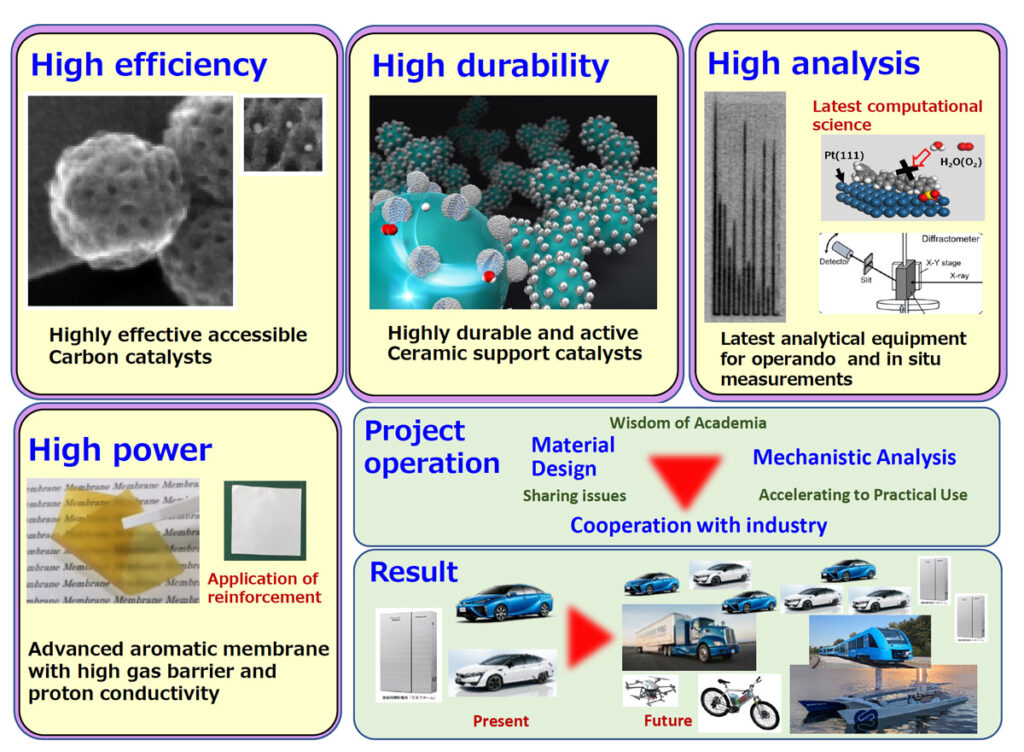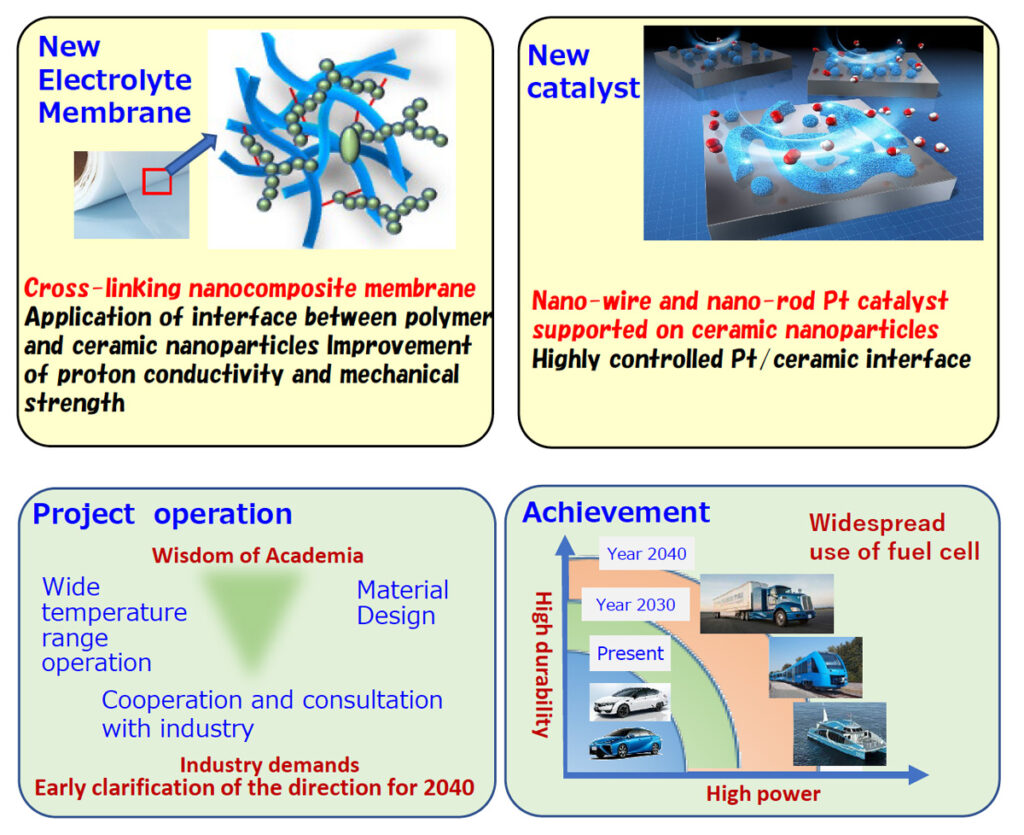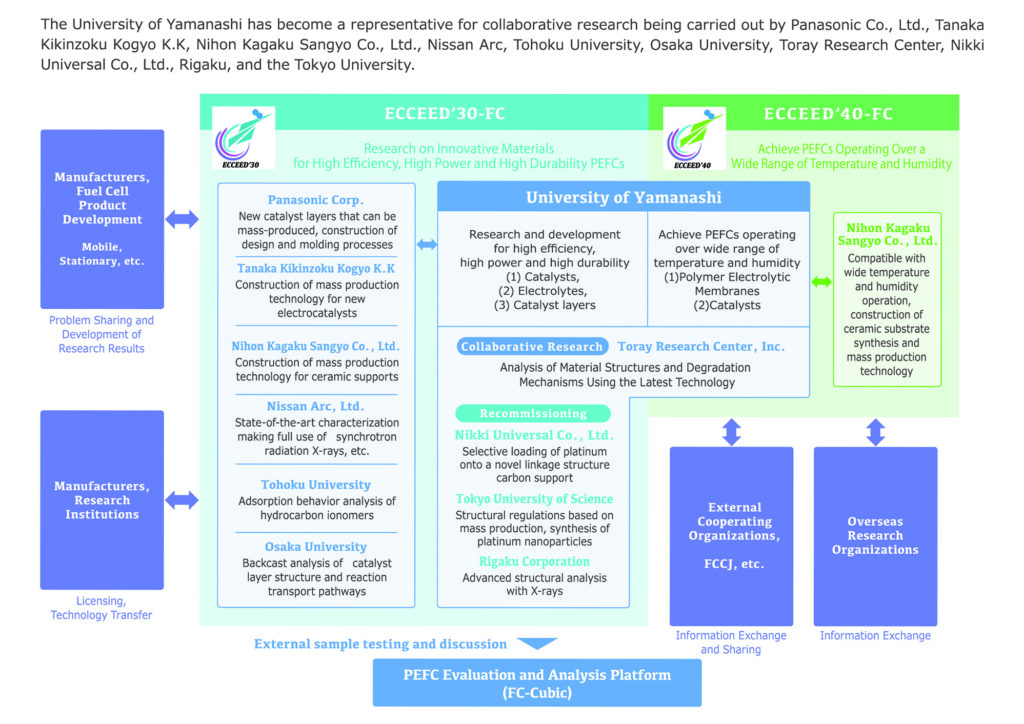Project Objectives
We have been commissioned with NEDO’s Hi-PerFC project (∗1) from 2008 to 2014, and NEDO’s SPer-FC project (∗2) from 2015 to 2019 to increase the output of fuel cells. We have been engaged in research on catalysts and electrolyte materials that contribute to high durability and efficiency, and catalyst layers that maximize their performance, and have made many achievements that are drawing attention around the world.
NEDO has newly commissioned the ECCEED’30-FC project (∗3) and the ECCEED’40-FC project (∗4). By incorporating new ideas while making use of the results so far from 2020, we will develop technology to realize a highly efficient, highly durable, low-cost fuel cell system based on the scenario defined in the NEDO Technology Map and other documents.
- ∗1Hi-PerFC Project
- NEDO Strategic Development of PEFC Technologies for Practical Application “Development of basic materials for high-performance cells that integrate deterioration mechanisms and nanotechnology”
- ∗2 SPer-FC Project
- NEDO Strategic Development of PEFC Technologies for Practical Application “Creation of materials concepts related to cell stacks /Concept creation of high output, high durability, high performance fuel cell materials”
- ∗3 ECCEED’30-FC Project
- NEDO “Innovative materials for high efficiency, high power and high durability PEFCs”
- ∗4 ECCEED’40-FC Project
- NEDO “Advanced material concepts for PEFCs operable over wide temperature and humidity ranges”

The NEDO project「Research on innovative materials for high efficiency, high power and high durability PEFC」aims to develop innovative materials that will realize technologies such as high-efficiency power generation, high-load operation, high-durability start-stop operation, and prevention of deterioration in extreme environments. This project is positioned to be implemented in automobiles and household PEFCs after 2030.


In the NEDO project「Advanced material concepts for wide temperature and humidity operated PEFC」we are working on the creation of a new polymer electrolyte membrane concept and catalysts with a ceramic support technology concept that can operate even in high temperature and low humidity environments. This project is positioned to work on technological development that contributes to further low cost, high performance, and high durability of fuel cell systems after 2030, to present the feasibility of the technology, and to clarify the issues for implementation around 2040.

Organization of the Research and Development
The University of Yamanashi is a representative for collaborative research being carried out by Panasonic Co., Ltd., Tanaka Kikinzoku Kogyo K.K., Nihon Kagaku Sangyo Co., Ltd., Nissan Arc, Tohoku University, Osaka University, Toray Research Center, Nikki Universal Co., Ltd., Rigaku, and the Tokyo University of Science.


